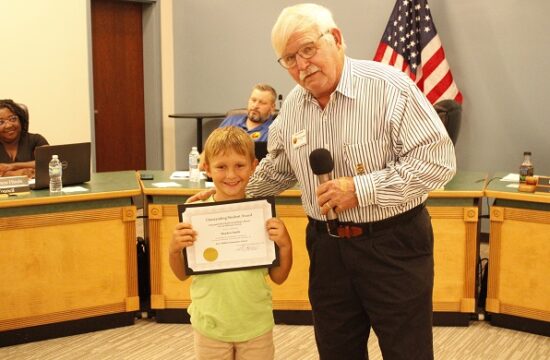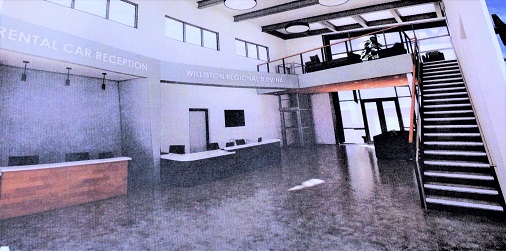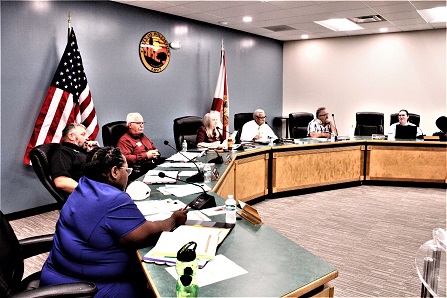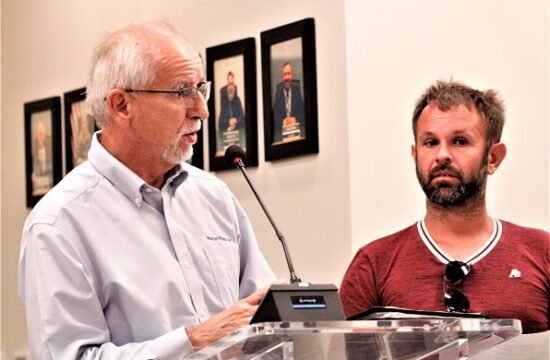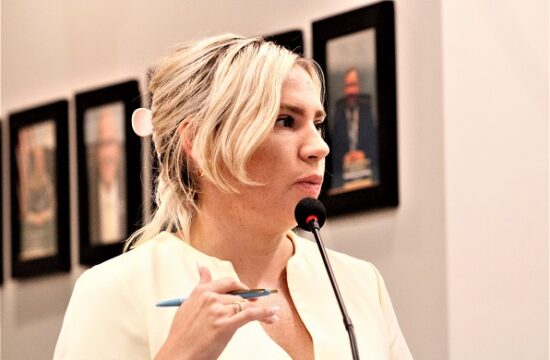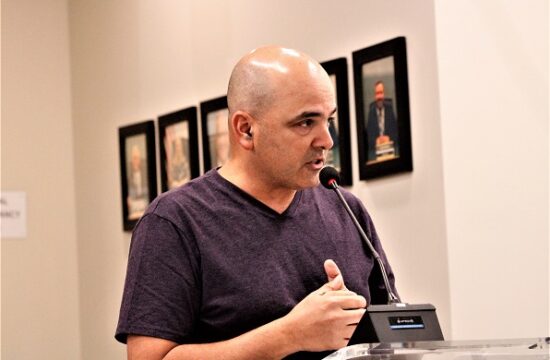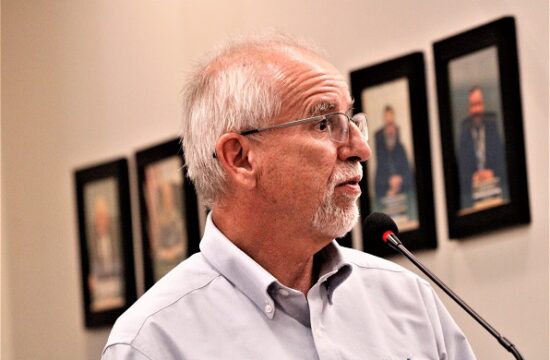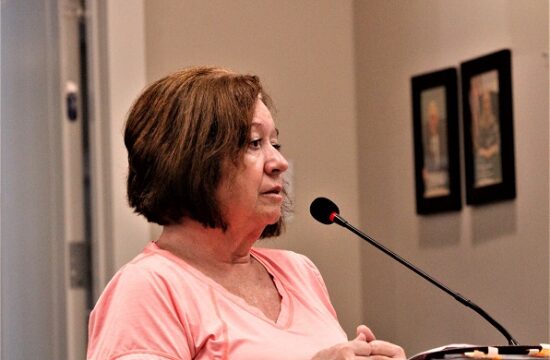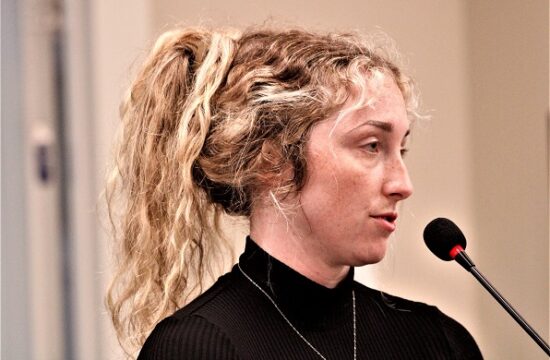By Terry Witt – Spotlight Senior Reporter
Williston city government is drafting a lease that would allow a horse crematory to operate at the city airport’s industrial park close to the back of Monterey Boats.
The owners of D&N Equine Recovery say the process of incinerating the remains of horses would be odorless and smokeless and won’t disturb airplane flight paths.
City Manager Jackie Gorman said incinerators are an allowed use at Williston’s industrial park and she is confident the crematory won’t be a problem.
“You probably won’t even know they are there,” she said. “It’s an allowed use in an industrial park.”
The city’s code of ordinances says site and development plan approval is needed for all industrial development, but public hearings won’t be held due to the fact that a crematory is an allowed use.
Gorman said the lease will need city council approval. The council approved writing the lease at its last council meeting. She said the lease won’t be reviewed at the upcoming council meeting on Tuesday.
D&N Equine Recovery LLC attempted to obtain county zoning approval to build the large animal crematory in a residential neighborhood in Morriston, but neighbors strongly objected to the commercial development next door to them at a January 3, 2022, public hearing.
County Planning Director Stacey Hectus said the Levy County Planning Commission recommended denial of the conditional use permit for D&N and the company withdrew its application.
She said the commission’s denial was brought about by a combination of neighbor opposition and that the fact D&N was planning to build the commercial crematory in a residential area zoned rural residential/agricultural.
“When they got up and started talking and asked for questions it was obvious it was more commercial than it was residential in nature, even for a rural residential-agricultural area,” she said.
One of the requirements of a conditional use permit in the county’s code of ordinances is that the project must be compatible with neighboring land uses.
She said she advised the owners of D&N that the area they wanted to use for the crematory was a residential neighborhood and they could run into problems with neighbors who might be opposed to a crematory next door to their homes. They assured her they had talked to neighbors and there wasn’t any opposition.
Hectus said she advised them of that issue in the first conversation they had about the crematory but they chose to go forward with the application. The county’s staff report said the crematory would operate 24-hours a day and likely would have staff on duty around the clock.
When D&N withdrew its application, Hectus said she advised the company that Williston had a large industrial park.
“I never recommended that it go to Williston. I only said Williston has an industrial park. Williston has more industrially zoned land than the county does,” Hectus said. “I gave them the Williston information.”
An employee of D&N told Spotlight that the company wants to construct a building large enough for the truck carrying the horse’s remains to park behind a closed door. D&N is proposing to erect a metal building for the crematory with a 12 by 26 feet wide and 9 feet tall large animal cremation incinerator.
“We would like the building to be big enough for use to move the horse from the truck to the crematorium with the overhead door closed,” the company said in its presentation to the Williston council.
D&N’s written presentation also provided insight into what type of technology the company plans to use at the Williston industrial park. D&N provided a statement about the technology.
“The IEB-56 represents the very latest in cremation technology and is a high-production system designed for facilities that expect large volumes (8,000-10,000 pets per year) or segregated or communal cremations and the individual cremation of large livestock, including horses,” the statement said. The system also comes with a SMOKE-BUSTER 283 Emission Control Chamber.
The equine incinerator burns the remains to ashes and any emissions get burned a second time in a 1,600-degree flame, leaving zero emissions, smoke, or odors, the company says.
The employee of the firm said it has been transporting the remains of horses through Williston for years and has had no complaints. He said the area of the truck carrying the horse is covered and blocks the view of the public.
He said cremating a horse isn’t cheap. He said it costs several thousand dollars. The owners who euthanize and cremate their horses often want the ashes returned to them.
Frequently the owners know well in advance that the animal must be put down and have called D&N before the animal is euthanized. The truck is sometimes en route when the animal is put down and there is no odor associated with the remains when transported to the crematory.
The background information provided by D&N to the city quoted an American Horse Council study as saying there are 80,260 horses in the Levy and Marion County area.
“With a mortality rate hovering between 1-2 percent there is ultimately a few thousand carcasses that need to be disposed of. On average, 8 or 10 pick-ups D&N makes are for animals that have to be euthanized. When an animal is euthanized and buried, over time the carcass will decompose. The toxic solution used in euthanasia will eventually seep into the drinking water, especially in a state like Florida with a relatively high-water table. More and more, our customers are becoming aware of the environmental impact of burying euthanized livestock and would prefer cremation rather than removal. Cremation is ultimately the most environmentally friendly way of disposing of deceased livestock.”
Hectus said the number of horses that come to Marion and Levy County for shows from November through April increases the horse population considerably. She said horses can suffer injuries in shows and have to be put down.
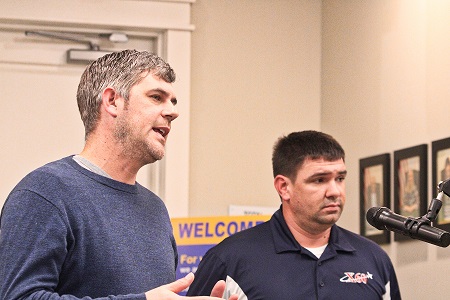
——————————–
City of Williston Regular Meeting February 8, 2022; Posted February 19, 2022



